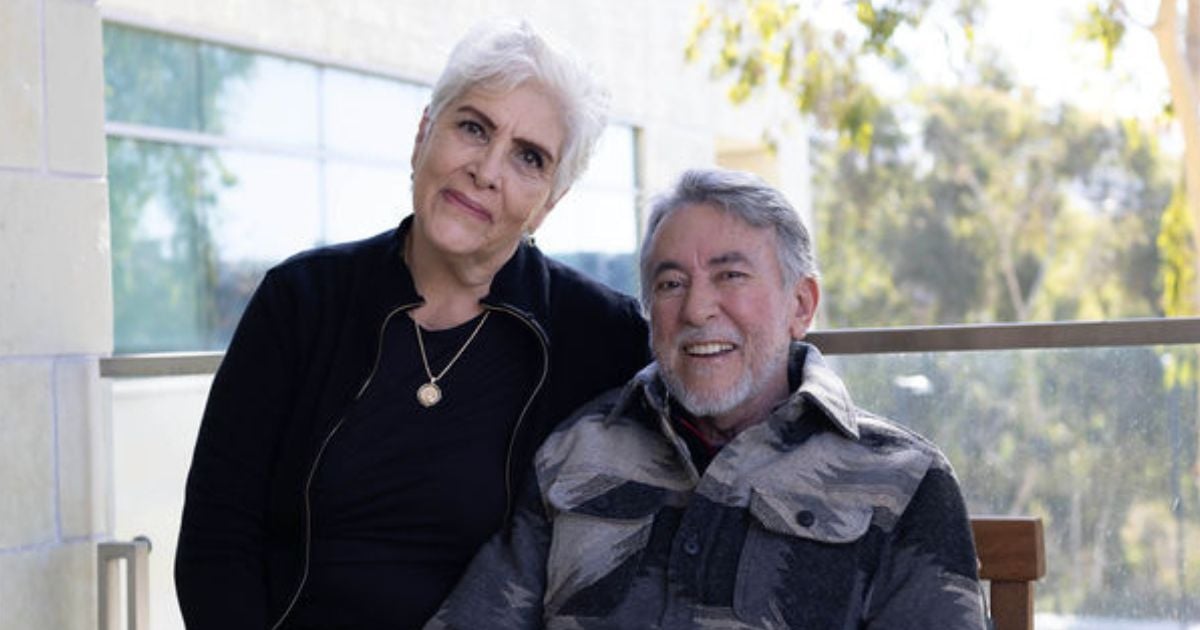Pancreatic Cancer Research
Pancreatic cancer remains one of the most complex and aggressive diseases to treat.
At UC San Diego Health, our scientists and clinicians are working across disciplines to confront that challenge, driving progress in detection, diagnosis and treatment through focused, patient-centered research.
From investigator-led studies to national collaborations, our approach bridges laboratory breakthroughs and clinical care. The work you’ll see below reflects a commitment not just to advancing science, but to creating real options for patients.
Clinical Trials
UC San Diego Health is leading innovative clinical trials to bring the latest discoveries to patients with pancreatic cancer. These studies explore new treatments, targeted therapies and advanced surgical approaches that aim to improve outcomes and quality of life.
Targeting KRAS Mutations
KRAS inhibitors are emerging as a promising class of targeted therapies, especially for cancers with KRAS mutations, present in over 90% of pancreatic cancers. These drugs directly target the KRAS protein, which drives tumor growth, and have shown promise in improving outcomes. Ongoing trials are evaluating their safety and efficacy, with some demonstrating the ability to overcome resistance to conventional treatments.
Investigator-Initiated Trials
Investigator-initiated trials at UC San Diego Health help translate lab discoveries into clinical applications. Led by our physician-scientists, these trials test novel therapies, biomarkers and treatment combinations, often ahead of industry-sponsored studies. This approach allows exploration of innovative ideas and accelerates progress in patient care.
Cell Therapy Trials
UC San Diego Health is investigating CAR-T cell therapies designed to target pancreatic cancer cells with greater precision. Logic-gated CAR-T strategies combine tumor and immune system cues to enhance effectiveness and reduce side effects. These early-phase trials offer new hope for a difficult-to-treat cancer.
Immunomodulation Strategies
Researchers are working to make immunotherapy more effective by reprogramming the tumor microenvironment using peptides, novel inhibitors, cytokines and vaccines. These strategies aim to activate the immune system, counter immune suppression and improve treatment response. Many of these approaches originate from our Pancreatic Cancer Pipeline.
Expanding Surgical Options: Immunosurgery
Irreversible electroporation (IRE), a non-thermal ablation technique, uses electrical pulses to destroy tumor cells. Paired with immunotherapy, it may increase the body’s ability to recognize and attack cancer. Rebekah White, MD, is pioneering surgical approaches for patients with previously inoperable tumors.
Research
Our researchers are working to better understand pancreatic cancer at the molecular level. From developing immune-based therapies to advancing early detection and precision medicine, this research is shaping the future of cancer care.
Immuno-Oncology
UC San Diego Health scientists are advancing immune-based therapies by developing immune checkpoint inhibitors and novel cytokine strategies. These approaches aim to amplify the body’s natural defenses and improve responses to treatment.
Novel Therapeutics
Our research focuses on next-generation therapies —personalized medicine, gene therapy and immunotherapy — that target the root causes of cancer. These innovations aim to offer more effective and individualized treatment options.
Precision Oncology
By analyzing the genetic and molecular makeup of a patient’s tumor, precision oncology allows for customized treatments with higher efficacy and fewer side effects. Genomic sequencing helps match patients with targeted therapies that best suit their cancer profile.
Early Detection and Prevention
Because pancreatic cancer is often diagnosed late, early detection is critical. UC San Diego Health is advancing screening, genetic testing and biomarker research to identify high-risk patients and detect tumors earlier, when treatment is more effective.
AI and Systems Biology
Researchers are leveraging systems biology and artificial intelligence to analyze complex biological data and uncover patterns in cancer development. These tools are enabling more accurate predictions, deeper molecular understanding and more informed treatment strategies.



